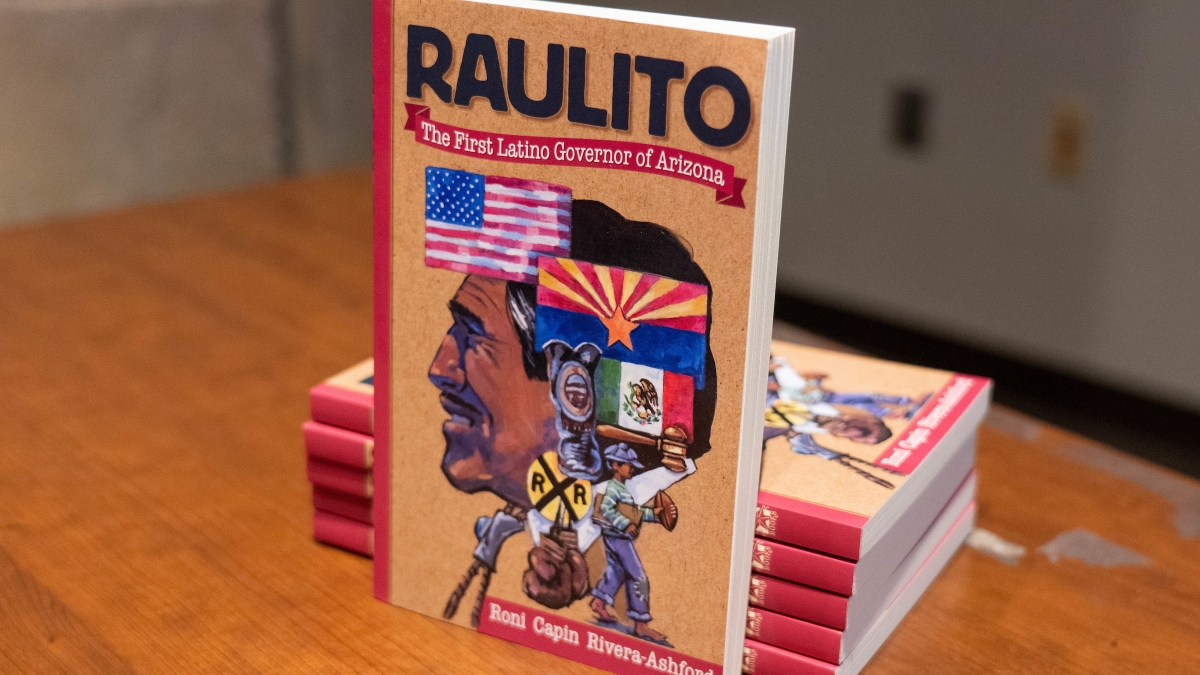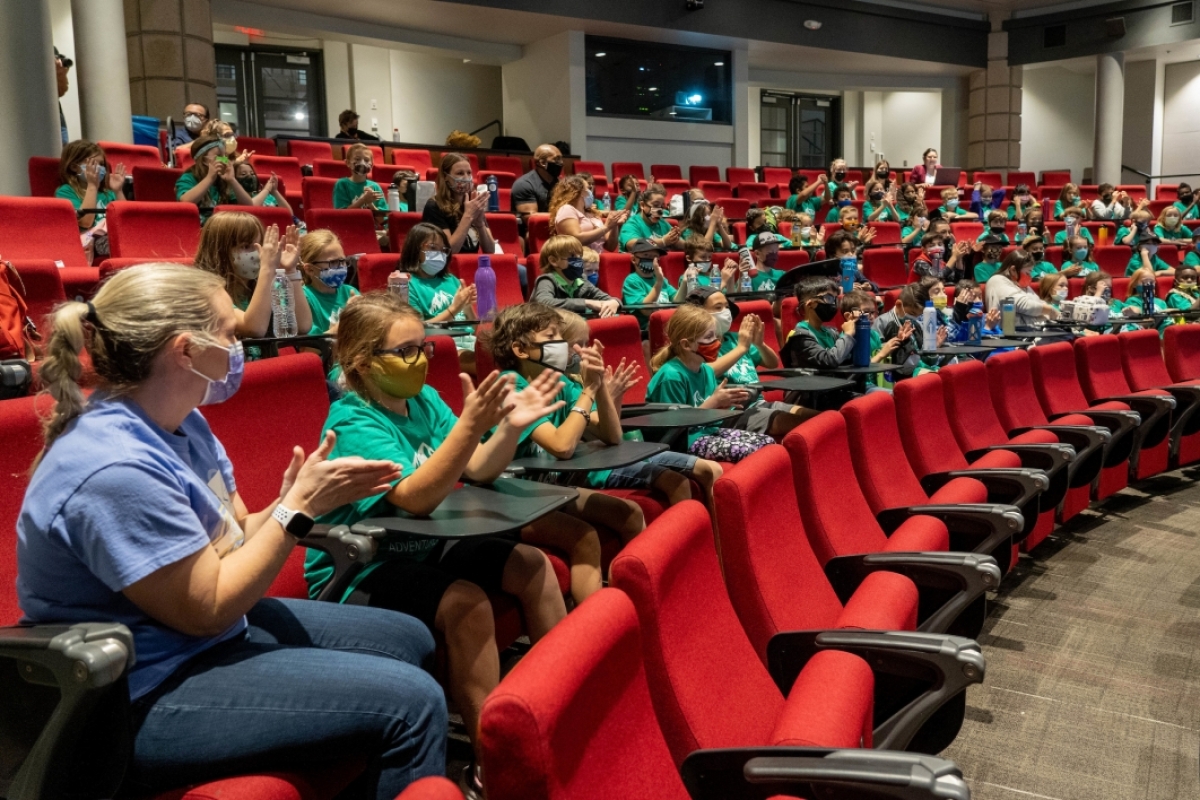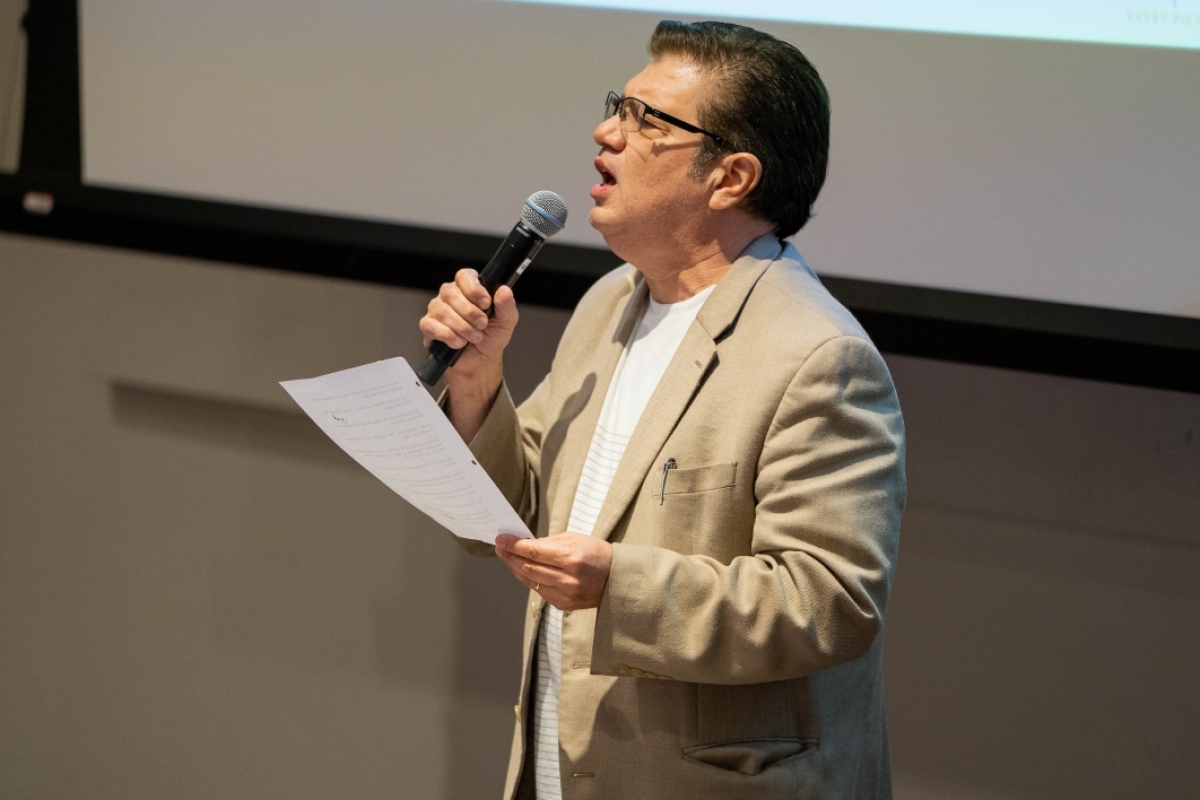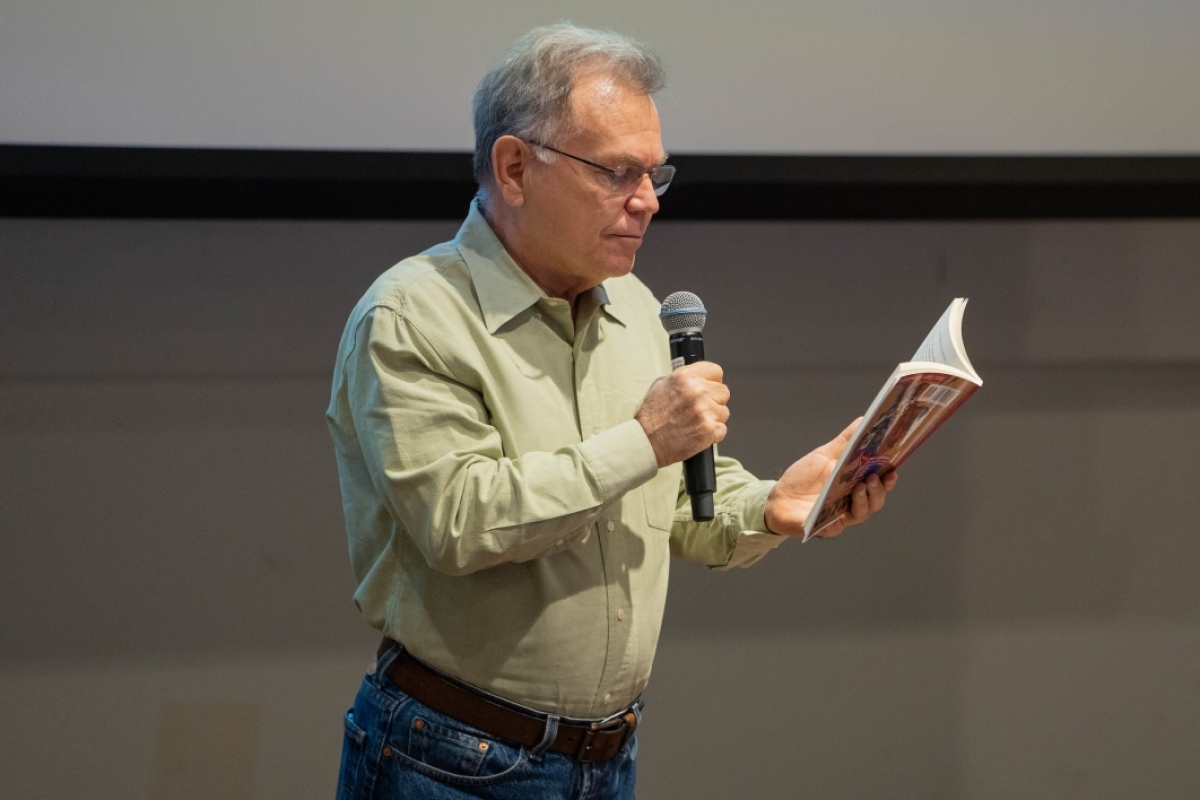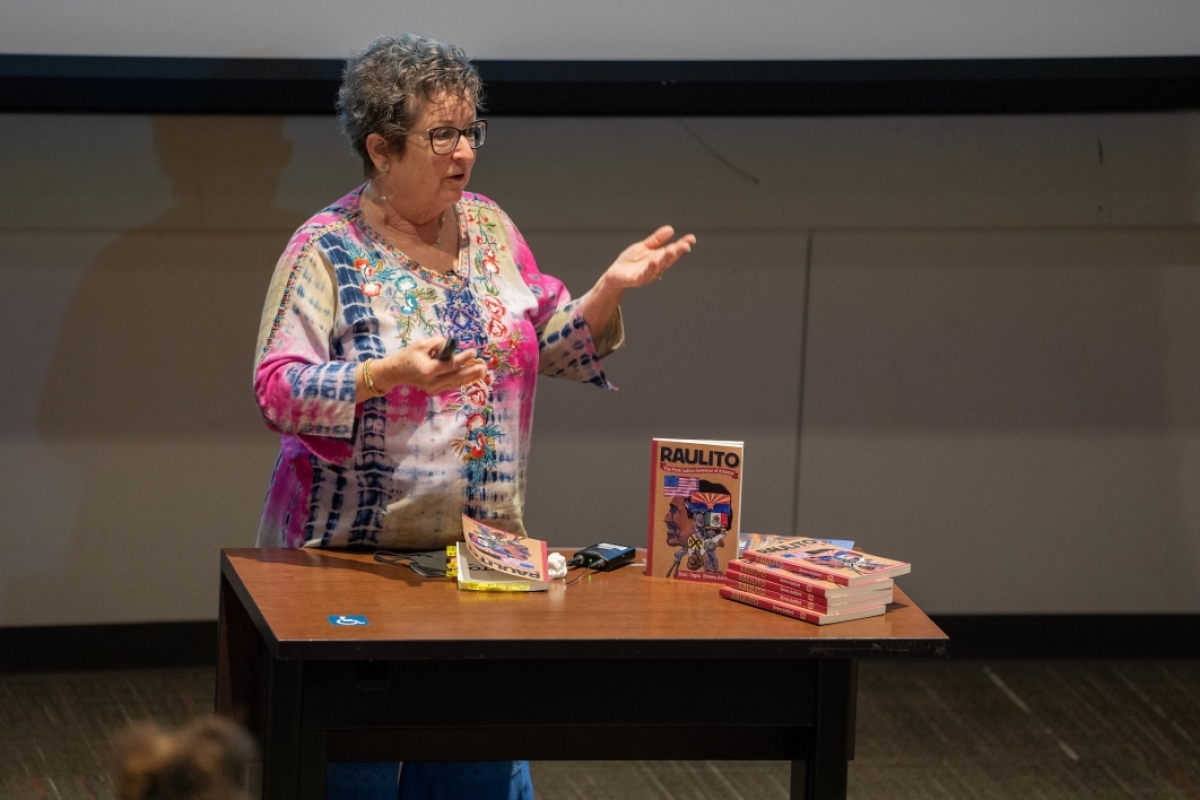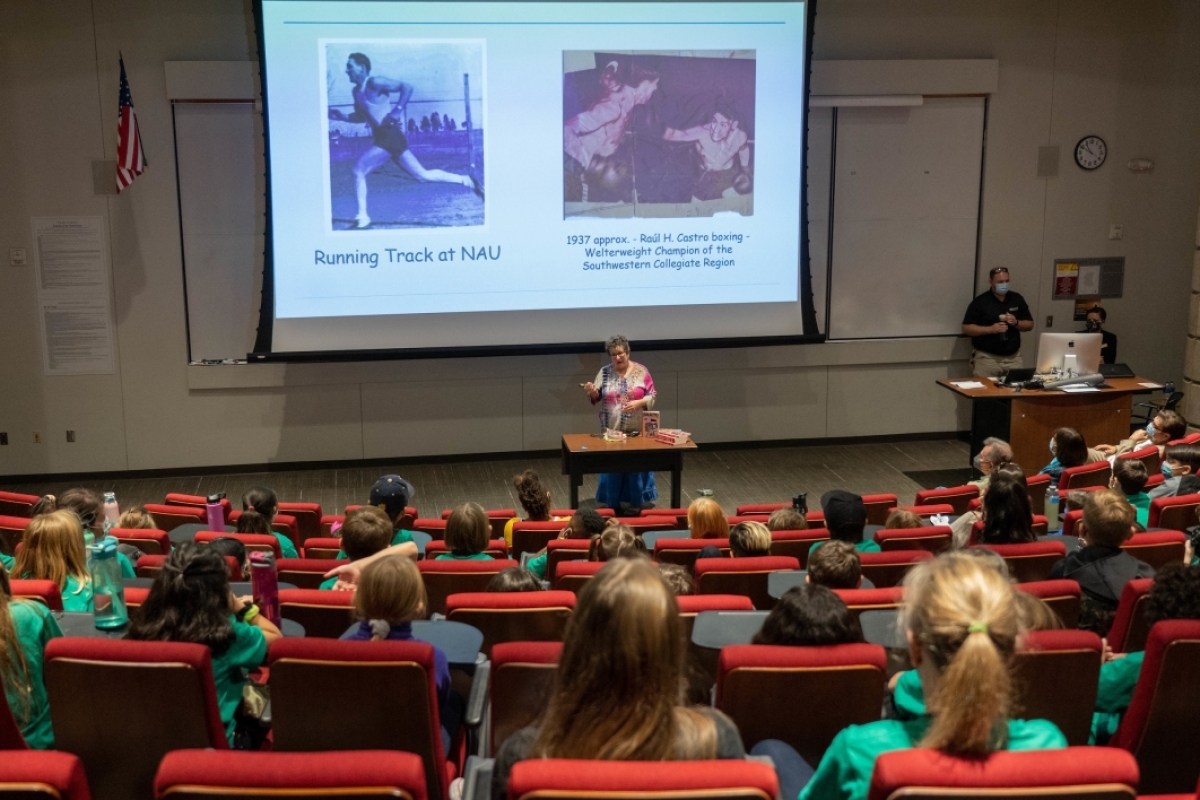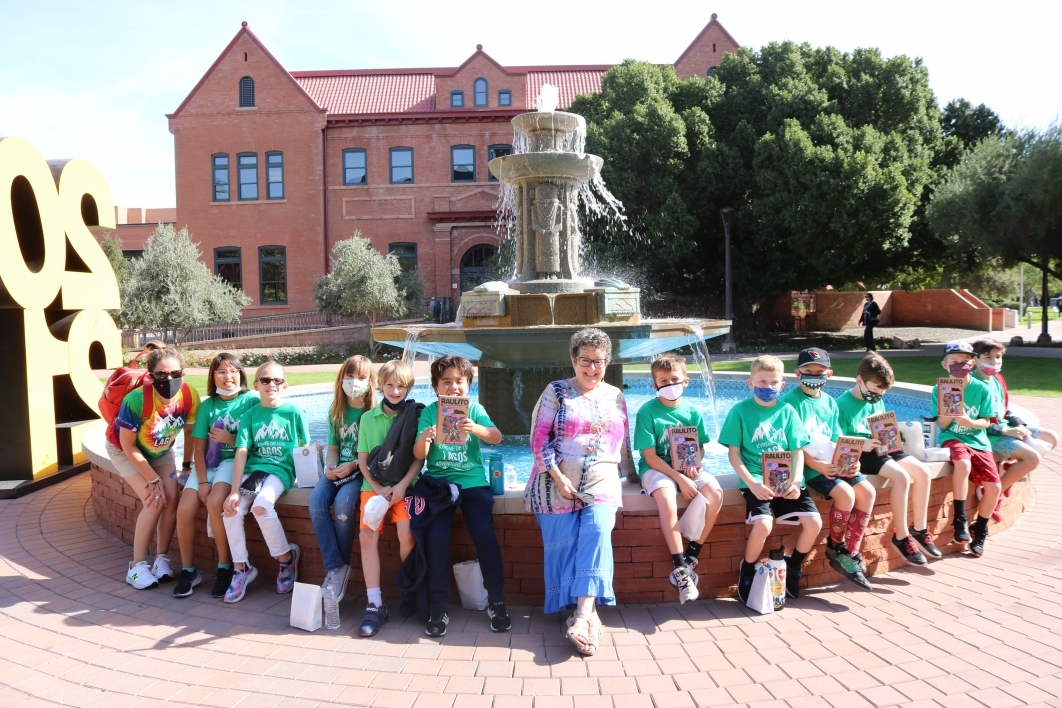It’s not easy keeping the attention of 100 third graders. But last week, a group of young students from Kyrene de los Lagos Elementary School sat rapt in an auditorium on Arizona State University’s Tempe campus as playwright James Garcia told them — in character as Raúl H. Castro, Arizona’s first Latino governor — about how we went from a poor immigrant to a respected community leader.
Garcia’s performance, an excerpt from his short play, “American Dreamer: The Life and Times of Raúl H. Castro,” opened an eventThe event was co-sponsored by The College of Liberal Arts and Sciences, the Hispanic Research Center and the School of International Letters and Cultures. hosted by the School of Politics and Global Studies, The Center for Latina/os and American Politics Research and the School of Transborder Studies.
In addition to the third graders attending in person, 200 fourth and fifth graders joined via Zoom for “Seeing ‘Someone Like Me’ in Office: Symbolic Representation, Raúl Castro, and the Importance of a Latino Governor.”
The event featured Garcia; Roni Capin Rivera-Ashford, author of the bilingual book, “Raulito: The First Latino Governor of Arizona/El primer gobernador latino de Arizona”; and a handful of ASU professors, all of whom gathered to share their knowledge of Castro and communicate a message of empowerment to the young Latinos in attendance.
“All of you, every single one of you, could become governor,” said Alberto Ríos, director of ASU’s Virginia G. Piper Center for Creative Writing and Arizona’s inaugural poet laureate.
Ríos followed Garcia with a reading of the poem he wrote to commemorate Castro after he died in April 2015 at the age of 98, titled “The Man Who Does Not Leave Us: Raúl H. Castro.”
Born in 1916, in Cananea, Mexico, Castro crossed the U.S.-Mexico border with his family at the age of 2 and settled in Douglas, Arizona, where his father found work as a miner. As one of 11 children, life was not always easy for him. In a presentation she gave about Castro, Rivera-Ashford told the audience how Castro walked 8 miles every day, to and from school.
The author had the chance to meet Castro in person after sending him copies of two of her books, “My Nana's Remedies” and “Hip Hip Hooray, It's Monsoon Day!” She later got permission to write his life story.
Although Rivera-Ashford originally intended for “Raulito” to be a picture book, once she began writing it, she realized there was just too much information from Castro’s life to include and reworked it to be the chapter book it is now.
It recounts how Castro, a less-than-committed student until a pep talk from his sixth-grade teacher motivated him to buckle down, eventually became an attorney, then a judge, before serving as U.S. ambassador to El Salvador from 1964 to 1968, and to Bolivia from 1968 to 1969.
Finally, in 1974, he made history when he became the first Latino to be elected governor of Arizona.
Despite Castro’s inspiring life story, he is not well remembered by history, nor is he a part of schools’ curriculums.
“I’m grateful that now we have this book and it will be disseminated in a way where there will not be an Arizona resident who doesn’t know who he is,” Rivera-Ashford said. “Hopefully we can make those ‘Five C's’ into ‘six C's,’ and the sixth ‘C’ is Castro.”
The full event is available to view on the School of Politics and Global Studies' Youtube channel.
Top photo: A stack of Roni Capin Rivera-Ashford’s book “Raulito: The First Latino Governor of Arizona," which recounts the life story of Raúl H. Castro, the first Latino governor of Arizona. Photo by Samantha Chow/ASU News
More Law, journalism and politics

Peace advocate Bernice A. King to speak at ASU in October
Bernice A. King is committed to creating a more peaceful, just and humane world through nonviolent social change.“We cannot afford as normal the presence of injustice, inhumanity and violence,…

CNN’s Wolf Blitzer to receive 41st Walter Cronkite Award for Excellence in Journalism
Wolf Blitzer, the longtime CNN journalist and anchor of “The Situation Room With Wolf Blitzer,” will accept the 41st Walter Cronkite Award for Excellence in Journalism, Arizona State University has…

Cronkite School launches Women Leaders in Sports Media live-learn program
Women in a new sports media program at Arizona State University got a solid game plan from a sports veteran at an Aug. 20 welcome event.“Be humble, be consistent and be a solver,” Charli Turner…
